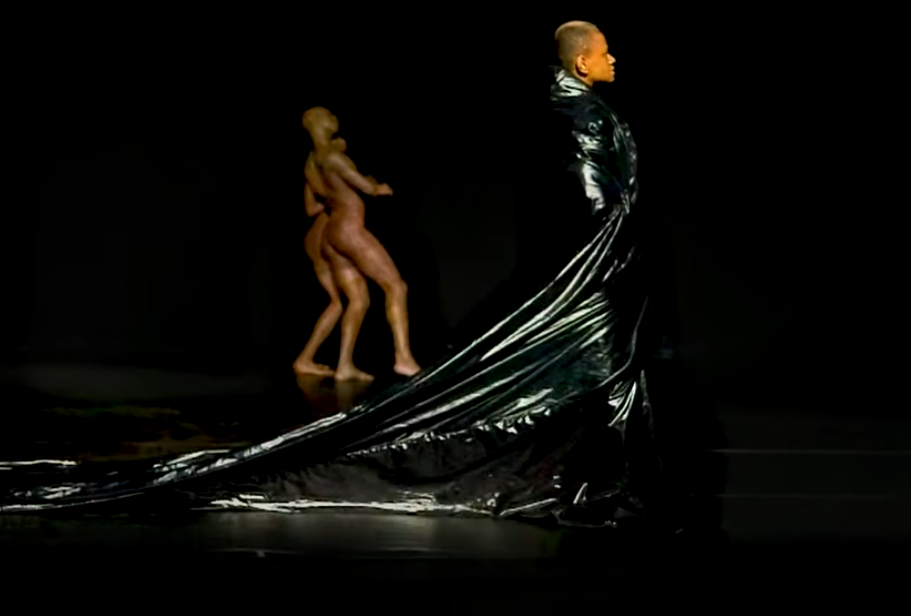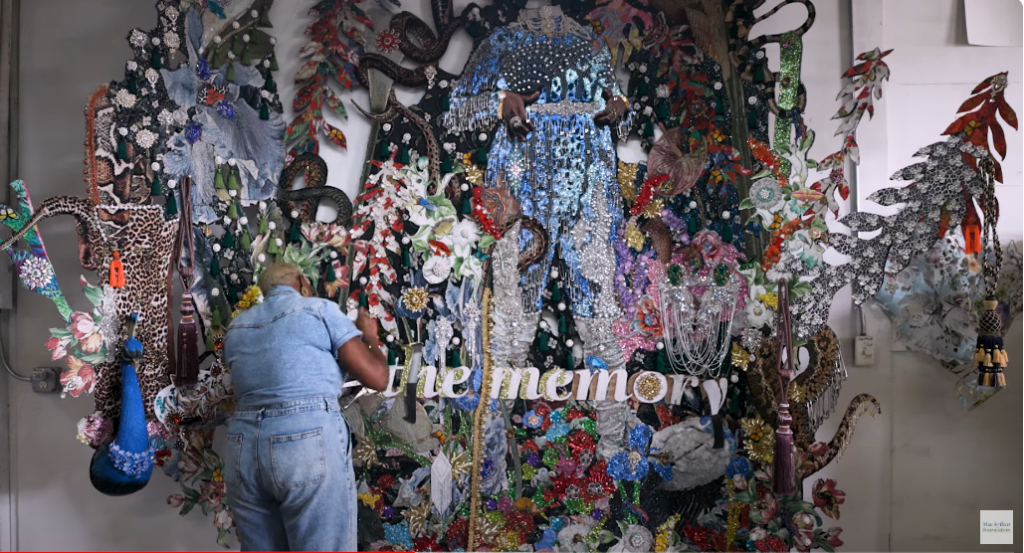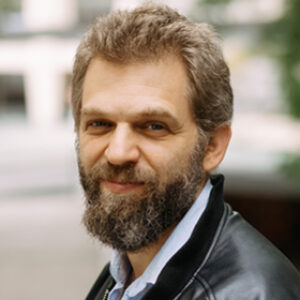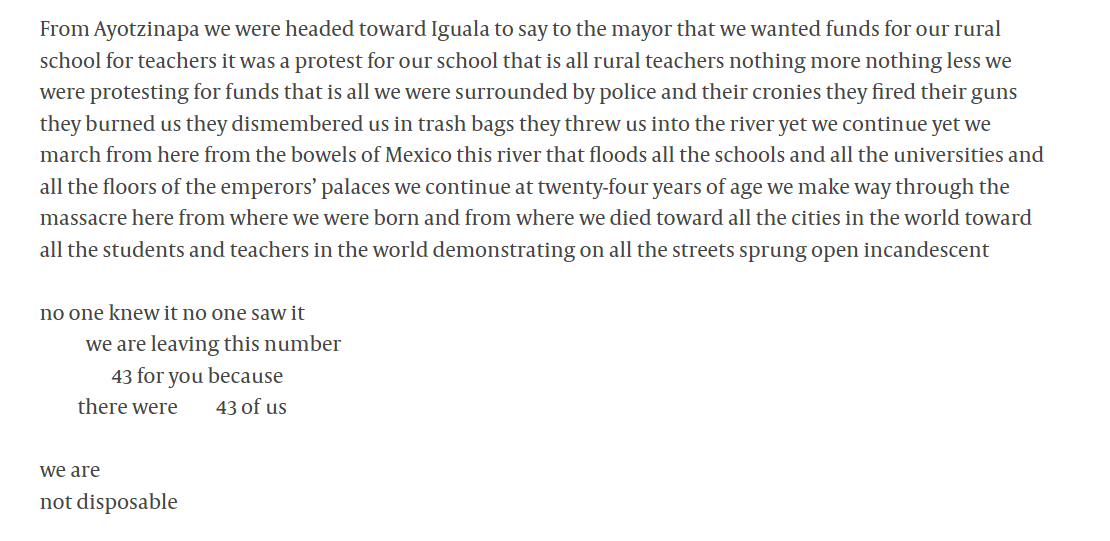There is much talk of a “vibe shift” in America this year. Declaring open support for Donald Trump is more acceptable and easier to do than ever. DEI departments in corporate America are shrinking or folding completely. Some colleges are even dialing back affirmative action.
But don’t fall for the hype too much just yet. This year’s crop of MacArthur Fellows just dropped, and they are, in microcosm, proof that at some of the highest echelons of American intellectual life, the fungal rot of DEI and CRT is as formidable as ever.
About twenty to thirty of the so-called MacArthur “Genius Grants” are given out each year by the MacArthur Foundation, one of America’s many very rich left-leaning foundations bankrolled by the hijacked inherited fortune of a deceased white male. Totaling $800,000 apiece, the grants are intended for individuals who have demonstrated “extraordinary originality and dedication in their creative pursuits and a marked capacity for self-direction.” The awards are famous for their lack of transparency; there are applications but no public nominations, and even those who decide who wins the awards remain mostly anonymous. Because of the substantial prize, which comes with no strings attached, winning a MacArthur is a dream achievement for practically any individual in any academic, scientific, or creative field.
Distinguished past winners of MacArthur grants include novelist Cormac McCarthy, computer scientist Stephen Wolfram, and mathematician Terence Tao.
The 2024 winners are… less likely to reach the heights of those men. Of the 22 fellows for 2024, about two-thirds were selected for what can only be described as DEI bullshit.
Let us list them.
Ruha Benjamin, Racist Computers Expert
Per the foundation, Ruha Benjamin “is a transdisciplinary scholar and writer illuminating how advances in science, medicine, and technology reflect and reproduce social inequality.” In other words, Benjamin excels at looking at different fields of study and making them about race. In a lifetime of work, Benjamin’s most impressive achievement appears to be coining a spiffy neologism in the title of her book Race After Technology: Abolitionist Tools for the New Jim Code (2019).
Get it? It’s like Jim Crow, but on a computer! Jim Code! Genius!
The book’s summary is some top-tier woke woo-woo:
From everyday apps to complex algorithms, Ruha Benjamin cuts through tech-industry hype to understand how emerging technologies can reinforce White supremacy and deepen social inequity.
Benjamin argues that automation, far from being a sinister story of racist programmers scheming on the dark web, has the potential to hide, speed up, and deepen discrimination while appearing neutral and even benevolent when compared to the racism of a previous era. Presenting the concept of the “New Jim Code,” she shows how a range of discriminatory designs encode inequity by explicitly amplifying racial hierarchies; by ignoring but thereby replicating social divisions; or by aiming to fix racial bias but ultimately doing quite the opposite. Moreover, she makes a compelling case for race itself as a kind of technology, designed to stratify and sanctify social injustice in the architecture of everyday life.
You may think that doesn’t sound terribly impressive, and that’s why you are not $800,000 richer.
Juan Felipe Herrera, “Chicanx” Champ

One of the oldest honorees, Herrera is honored for “uplifting Chicanx culture and amplifying shared experiences of solidarity and empowerment through poetry and prose.” He has already served as a U.S. poet laureate, so MacArthurt at least did honor somebody who has already achieved some distinction. Of course, being a “poet laureate” means less and less by the day. Amanda Gorman is America’s most famous living poet, and she’s a worse poet than quite a few precocious middle schoolers.
Herrera captures why poetry has lost so much standing as a modern art form. One of the poems MacArthur highlights as among his best work reads as follows in its entirety:
See, by doing rambling streams of consciousness and then using the tab key a few times at the end of your poem, you make it about 50 times more artistic.
Shamel Pitts, Black Dancer of Blackness (Who Is Black)
Did you know that dancer Shamel Pitts is black? Well, okay, probably not, because you’ve never heard of him, but in any case, that’s definitely the most important thing to learn about him right now.
Shamel Pitts is a choreographer and dancer developing multidisciplinary, performance-based works centered on collaboration and imagining new ways of being in the world.
[…]
Pitts’s choreography is rooted in classical dance forms and Gaga—a movement language focused on dancers’ responses to their own bodily sensations—and integrates influences from contemporary dance, hip-hop, and nightlife/club culture. TRIBE’s unique way of working is akin to worldbuilding, where spatial, lighting, and sound design elements are fully integrated with the dancers’ movements into multisensory works that envelop audiences. BLACK HOLE: Trilogy and Triathlon (2022), the last of three works in Pitts’s “BLACK Series,” features three performers accompanied by original soundscapes and visual projections. In TRIBE’s hands, a black hole is not destructive but rather a source of generative energy, and the work explores the Black body coming into being through collective empowerment. Near the end of the work, the three performers are engulfed in darkness as a pulsating beat wanes. Then, in a burst of light, the trio reappears and the beat returns, growing stronger and louder in a powerful expression of reawakening.
While Pitts explores external perceptions of Blackness in his “BLACK Series,” the works in his “RED Series” turn inward and focus on the diversity of experiences and relationships possible within Black identity.
Besides being black, Pitts’s dance choreography also seems kind of (very) gay.

Jennifer L. Morgan

NYU history professor Jennifer Morgan is a black woman, so you can probably take a wild guess what her subject specialization is. That’s right: Being a black woman!
Jennifer L. Morgan is a historian deepening understanding of how the system of race-based slavery developed in early America. Using a range of archival materials—and what is missing from them—Morgan brings to light enslaved African women’s experiences during the sixteenth and seventeenth centuries. She shows that exploitation of enslaved women was central to the economic and ideological foundations of slavery in the Atlantic world.
Morgan wrote her groundbreaking first book, Laboring Women: Reproduction and Gender in New World Slavery (2004), at a time when most scholarship focused on the transport, labor, and resistance of enslaved men. In Laboring Women, Morgan argues that enslavement was fundamentally different for women because of their reproductive potential.
[…]
Using a range of archival materials—and what is missing from them—Morgan brings to light enslaved African women’s experiences during the sixteenth and seventeenth centuries. She shows that exploitation of enslaved women was central to the economic and ideological foundations of slavery in the Atlantic world. Morgan wrote her groundbreaking first book, Laboring Women: Reproduction and Gender in New World Slavery (2004), at a time when most scholarship focused on the transport, labor, and resistance of enslaved men. … Morgan has established gender as pivotal to slavery’s institutionalization in colonial America, and her attention to the full ramifications of slavery for Black women sheds light on the origins of harmful stereotypes about Black kinship and families that endure to this day.
Shailaja Paik, Caste Queen
There’s stiff competition, but University of Cincinnati history professor Shailaja Paik’s MacArthur profile may take the top prize for sounding like a progressive Mad Lib (and, incidentally, she’s likely a mad lib herself). Not only is there stuff on race, gender, “the patriarchy,” and sex, but Paik adds a special dose of India by also writing about caste. Specifically, Paik writes about Tamasha, a type of Indian folk theater practiced by Dalit untouchables in Maharashtra state. It’s as titillating as it sounds.
For many Dalit women, Tamasha is a tradition and livelihood passed down through several generations. Paik outlines how caste reinforces notions of sex and gender, such that Tamasha is viewed as a form of sexualized labor and Dalit Tamasha women are indelibly branded as ashlil, or vulgar. Despite the state’s efforts to reframe Tamasha as an honorable and quintessentially Marathi cultural practice, ashlil sticks to Dalit Tamasha women.
Paik also critiques the narrative of Dr. B. R. Ambedkar, the twentieth century’s most influential caste abolitionist. Ambedkar places responsibility on Dalit women to uplift themselves through the rejection of sexualized performance, even if doing so causes great hardship. Paik’s analysis of hitherto neglected Marathi historical documents and oral histories shows that, in spite of this double bind, Dalit Tamasha women strategically make use of public performance. They leverage Tamasha for economic ends, to resist patriarchal notions of ashlil, and to attain manuski (human dignity) on their own terms. Through her focus on the multifaceted experiences of Dalit women, Paik elucidates the enduring nature of caste discrimination and the forces that perpetuate untouchability.
Paik’s MacArthur page uses the word “sexuality” seven different times…

Alice Wong

We are actually going to go easy on disability rights activist Alice Wong. Sure, she founded the “BIPOC Disabled Filmmakers Coalition,” and her profile also celebrates her for the profoundly lame reason of “[using] hashtag activism, such as #PodSaveJon and #HighRiskCA, to create change.” But Wong does at least have a real severe physical disability and isn’t just a minority with a chip on her shoulder.
That’s not why we’re going easy on her, though. No, Wong deserves praise for a different reason: she leveraged her disability to fight against stupid plastic straw bans, a manipulation of identity politics Revolver is happy to get behind.
Tony Cokes, Maven of Musical PowerPoints
Media artist Tony Cokes is black, but breaks the mold by focusing on topics that transcend identity polit—nah, just kidding, he does a bunch of stuff about being black.
In his early video piece Black Celebration (A Rebellion Against the Commodity) (1988), Cokes reconsiders the uprisings that took place in Black neighborhoods in Los Angeles, Detroit, Newark, and Boston in the 1960s. He combines documentary footage of the upheavals with samples of texts by the cultural theorist Guy Debord, the artist Barbara Kruger, and the musicians Morrisey and Martin Gore (of Depeche Mode). Music from industrial rock band Skinny Puppy accompanies the imagery. In this new context, the scenes of unrest take on new possibilities of meaning: the so-called race riots are recast as the frustrated responses of communities that endure poverty perpetuated by structural racism.
Along with covering the most predictable topic imaginable, Cokes’ “media art” is itself incredibly basic and lazy. As even MacArthur’s own profile says (they call it “deceptively simple”), Cokes’ signature style is to simply put lines of text over a monochromatic background while playing music. This video whining about Donald Trump, titled “Of Lies and Liars,” is a typical example:
Ebony Patterson, Glitter Girl
Multimedia artist Ebony Patterson has two significant advantages over the previous winner: First, her artwork, whether good or bad, actually exists and requires more effort than playing a song during a political rant.

Second, in an incredible feat for this crop of “geniuses,” Patterson is black, yet her MacArthur profile doesn’t mention it. Instead, we are presented with this incredible bit of academic gobbledygook:
In early works, such as the “Gangstas for Life” series (initiated in 2008), Patterson explores ostentatious adornment—“bling”—as a strategy employed by working-class people to attain visibility. She establishes dress as a tool of empowerment for those thought to be socially and economically powerless in postcolonial spaces. Patterson incorporates hand-cut paper, gouache, glitter, and mixed media elements in these works, giving them a tactility that encourages viewers to linger over their surfaces and establishes an intimacy between viewer and subjects. Patterson has continued to expand the range of tactile elements in her work, including fabrics, tapestries, beads, fashion jewelry, trims, notions, photography, and found objects. In more recent works, Patterson employs the garden as a site of power to examine loss in the context of the colonial past and to imagine a restorative future.
That deep groan you just heard probably just emanated from yourself.
Dorothy Roberts, UPenn’s Not-Suspended Professor
The University of Pennsylvania recently suspended law professor Amy Wax for a whole year due to her offense of speaking the truth about affirmative action. Upon observing the other professors listed on the school’s roster, one begins to comprehend the reasons behind this decision.

Newly-minted “genius” Dorothy Roberts is being honored for “exposing racial inequities embedded within health and social service systems.” Or, to translate it into normal English, Roberts has made a whole career out of whining that black parents are investigated by child protective services more frequently than others. Obviously, this cannot solely be attributed to their higher crime rates or the catastrophic state of black nuclear families. Instead, Roberts argues that it’s all due to racism. Wow, what a genius!
Jericho Brown, Blah Blah Blah Race

And here we have the gay black poet—never leave home without one! Gee, can you guess what he writes poems about?
Justin Vivian Bond, Tranny Cabaret Dancer
This one is self-explanatory.

Keivan Stassun, Astronomer

Holy cow! It’s a white-ish (half Mexican, half Iranian) guy! And he’s an astronomer! Surely this award is for something that isn’t about melanin or vaginas?
SNah, of course it is. Stassun receives one of MacArthur’s six-figure grants for “expanding opportunities in [STEM] education and careers for underrepresented populations” by co-founding a Masters-to-PhD program aimed at black students.
Meet Keivan Stassun, a science educator, astronomer, and 2024 #MacFellow expanding opportunities in STEM education and careers for neurodiverse and underrepresented populations.
Learn more about Keivan ⬇️https://t.co/jOoHWL2h5Z pic.twitter.com/kIp7YxmoZG
— MacArthur Foundation (@macfound) October 1, 2024
Even for entries that are not relentless identity politics, there is a preference for work that reflects politicized topics or emphasizes the world as a conflict between oppressors and the oppressed. Computer scientist Nicola Dell’s work centers on “developing technology interventions to address the specific needs and concerns of overlooked populations, in particular survivors of intimate partner violence and home healthcare workers.” The most interesting thing about novelist Ling Ma is that she once worked as a fact-checker at Playboy, but inexcusably MacArthur does not mention this, instead babbling about how “her characters navigate jobs, relationships, cultural expectations, and hyphenated, immigrant identities that both trap and liberate them.”
Of the 22 total prizewinners, we count only four that seem totally devoid of any identity politics nonsense. You can probably guess what they look like.




Just another day in the Globalist American Empire…
JOIN THE FIGHT — DITCH THE ADS — READ THE NEWSFEED — FOLLOW ON X — GAB — GETTR — TRUTH SOCIAL



Join the Discussion